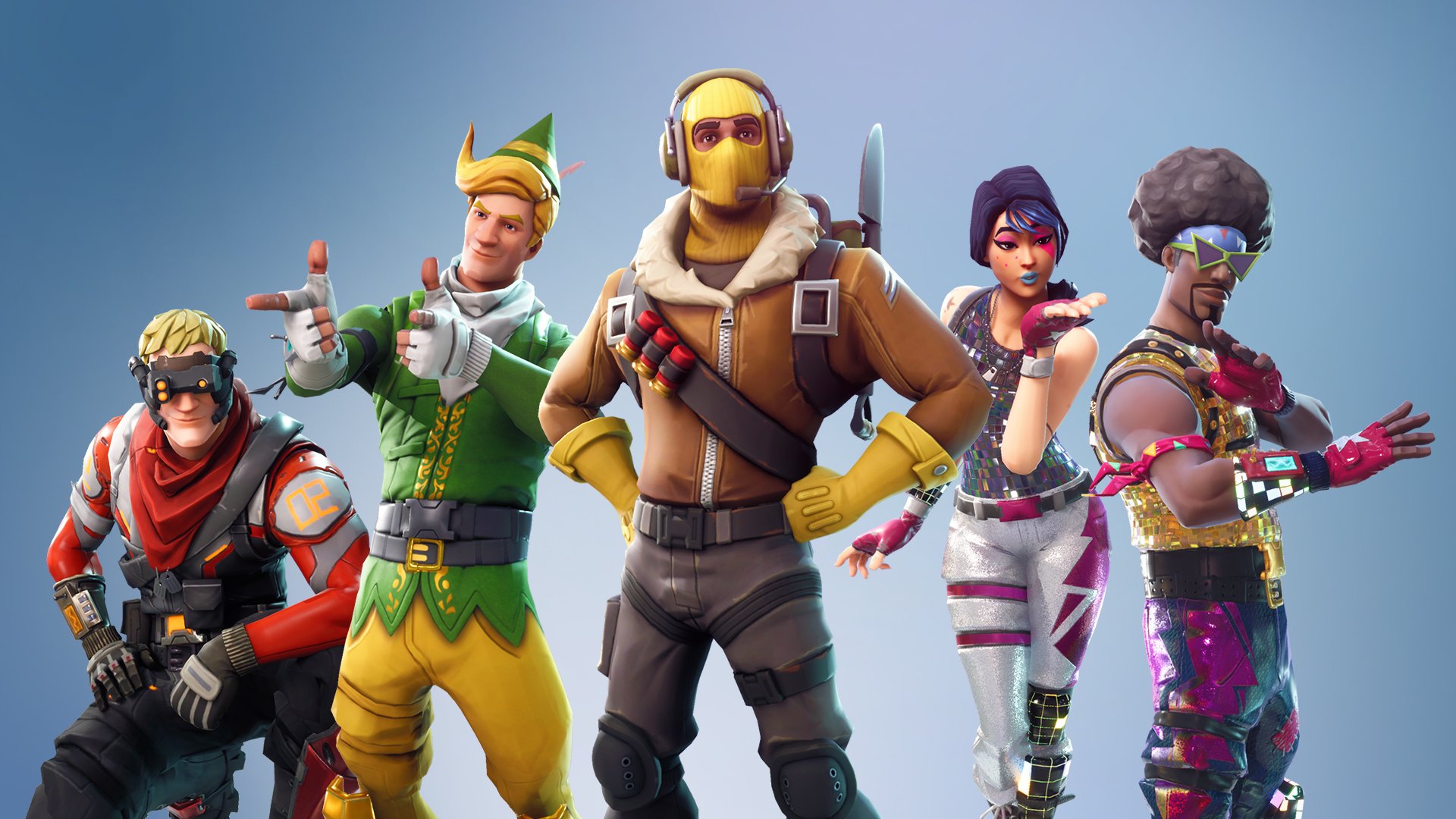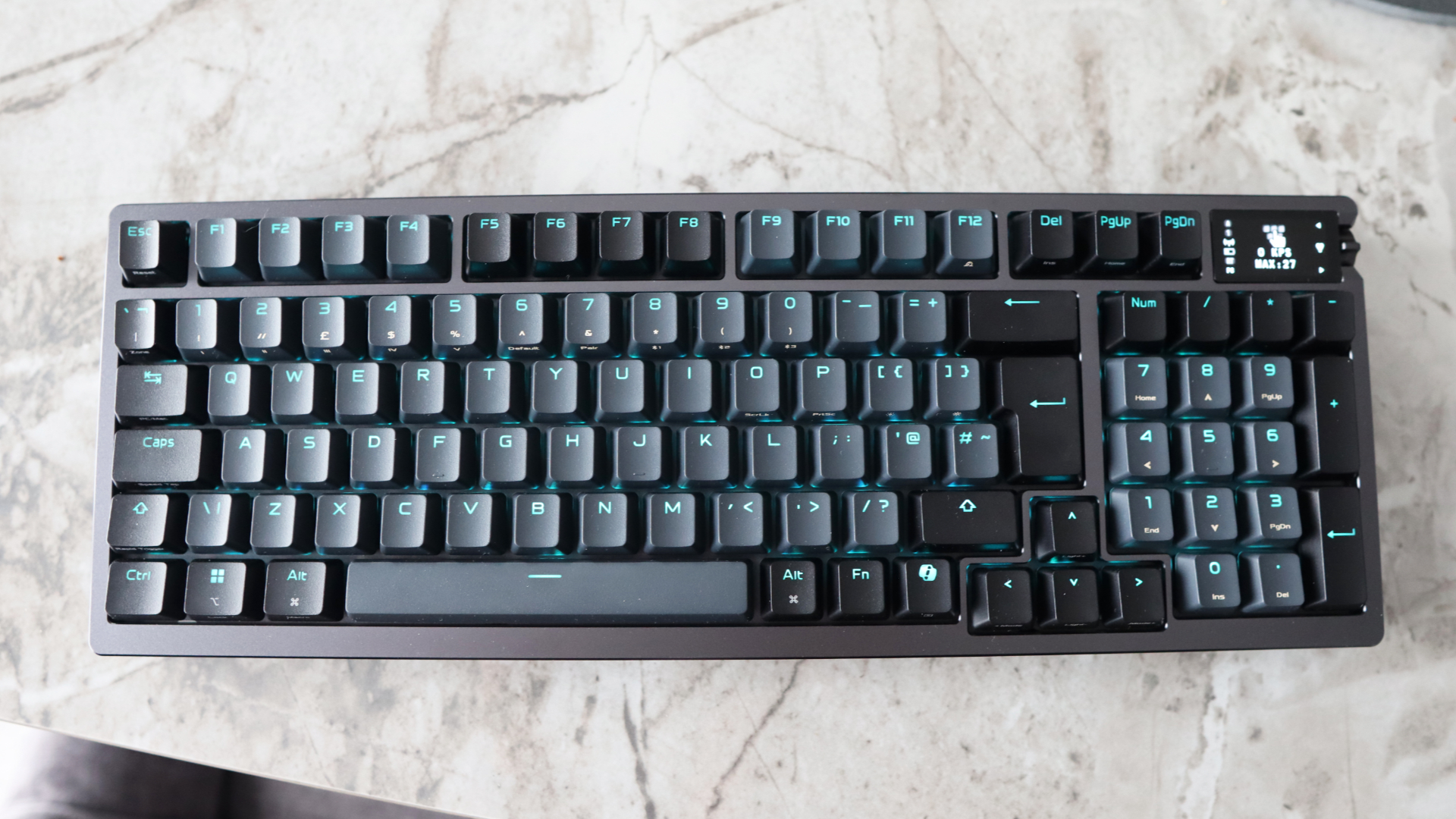Epic's first official Fortnite competition was a total disaster
For once, blaming lag wasn't an excuse.
Epic Games promised big things with Fortnite's first year of official competition, investing $100 million in prize money alone. The Summer Skirmish series would kick things off with a $250,000 duos competition featuring big streamers, pros, top performers in the Showdown limited time mode, and, bizarrely, the subreddit mods.
It was a trainwreck.
Some of the best competitors died to horrible latency issues while the casters laughed it off. At one point, a private planning spreadsheet appeared on screen for all viewers. 10 matches were promised; four were broadcast. A seemingly arbitrary invite list meant dozens of established pros (and the best Showdown LTM participant) were denied a chance to compete in the first place. With most of the prize money riding on nabbing two Victory Royales, play was conservative and dull, a clinic in how to camp.

What's new with the latest Fortnite season
The best Fortnite creative codes
The optimal Fortnite settings
Our favorite Fortnite skins
The best Fortnite toys
Epic has committed to broadcasting this series weekly for the next two months. To avoid additional disaster, the company will have to quickly figure out how to keep their servers strong enough to support remote tournaments, while capturing the action in a clear, communicable manner with casters that have more to talk about than what they know about llamas. You'd think some of that $100 million would've gone to figuring it all out beforehand.
Poor perspective
Because all players were playing remotely, the action was almost impossible to follow, with perspective limited to hot-swapping between competitors' Twitch feeds. I can't imagine tracking every stream at once, spotting action, and then coordinating with a production team to change the live feed, especially without disrupting the commentators. Most of the broadcast consisted of players farming and hiding in wooden huts, punctuated by the occasional battle totally removed from its greater context in the match.
CLIP: How the sausage is made: spreadsheets.
Fortnite needs dedicated camera tools for the action to begin to be comprehensible. While they weren't used to great effect in the Celebrity Pro-Am back in June, free-floating cameras were there, which made following multiple players in messy build fights much easier to follow and greater swaths of the map and players within visible from afar.
Keep up to date with the most important stories and the best deals, as picked by the PC Gamer team.
But smooth camerawork can only go so far in battle royale. The scale of the genre means aspects of the competition will always be out of sight, or difficult to parse. Smart, skilled casters are there to fill in those blanks.
CLIP: It was a few hours of this.
I can't speak to the casters' knowledge of Fortnite, but the impression they left was that maybe one of them were regular players. Rather than give informed running commentary about the nascent strategies of this newborn esport, the bulk of their contribution was to gasp and yell during dramatic moments, or to make bad jokes, ruminating on the future of the 'www' prefix for URLs. I'm guessing Epic didn't want to bog down their massive audience with alienating, in-depth chatter, but who wants a trio of dudes straining to do their best ESPN impression to tell us the sky is blue for hours on end?
Caution for the win
Even if Al Michaels was there to talk us through the action, there wasn't much action to behold. Towering build-offs and soaring bounce pad plays were largely absent. Most players opted to build huts and camp until forced to either move or engage.
Expecting competitors to play as aggressively as they would in a public match was Epic's second major mistake. With money on the line, no one wanted to take unnecessary risks if Victory Royales carried the most weight. A known issue in private scrimmages in the competitive Fortnite community, players turtled at every opportunity, wrapped in wood and brick and metal to avoid as much conflict as possible. By the time the final few storm circles appear in a public match, somewhere between 5 to 15 players typically remain. Each match of the Summer Skirmish saw between 30 to 50 players in the last few circles. PUBG's earliest esports tournaments were similarly passive.
CLIP: Myth chains together Myth houses. Smart, but not too scenic.
The result was a mess of hulking towers and ground-hugging bunkers oozing their way towards the center of the next circle and the next, while players inside built and edited structures to stay out of the storm. As if it wasn't boring enough to watch, the concentration of so many players and structures in a small space put undue stress on the private server, causing terrible lag for anyone still alive. Some players that would've survived without latency issues died because they were teleported back into the storm, or were shot from cover because the server registered them as in the open. By next week, lag will need to be eliminated and kills will require a much greater emphasis than just nabbing a victory. Expect to see the inside of a cramped 1x1 hut in every match until changes happen.
I wouldn't be as upset if Epic had just called it the moment lag struck. The competition was broken from the second it became a problem in the first round, and yet the show carried on for four matches. Winners were crowned in each and, presumably, prize money is still going out. It's as if a baseball game carried on through a flash flood. So what if the outfielders were swept away?
No $250,000 competition should look like this, especially if it's put on by the developer itself. No doubt the team at Epic is unhappy with how things went down, but without proper camerawork at the ready, casters with a clue, or a proven ruleset that encourages exciting and aggressive play, I'm not sure what was expected.
James is stuck in an endless loop, playing the Dark Souls games on repeat until Elden Ring and Silksong set him free. He's a truffle pig for indie horror and weird FPS games too, seeking out games that actively hurt to play. Otherwise he's wandering Austin, identifying mushrooms and doodling grackles.


